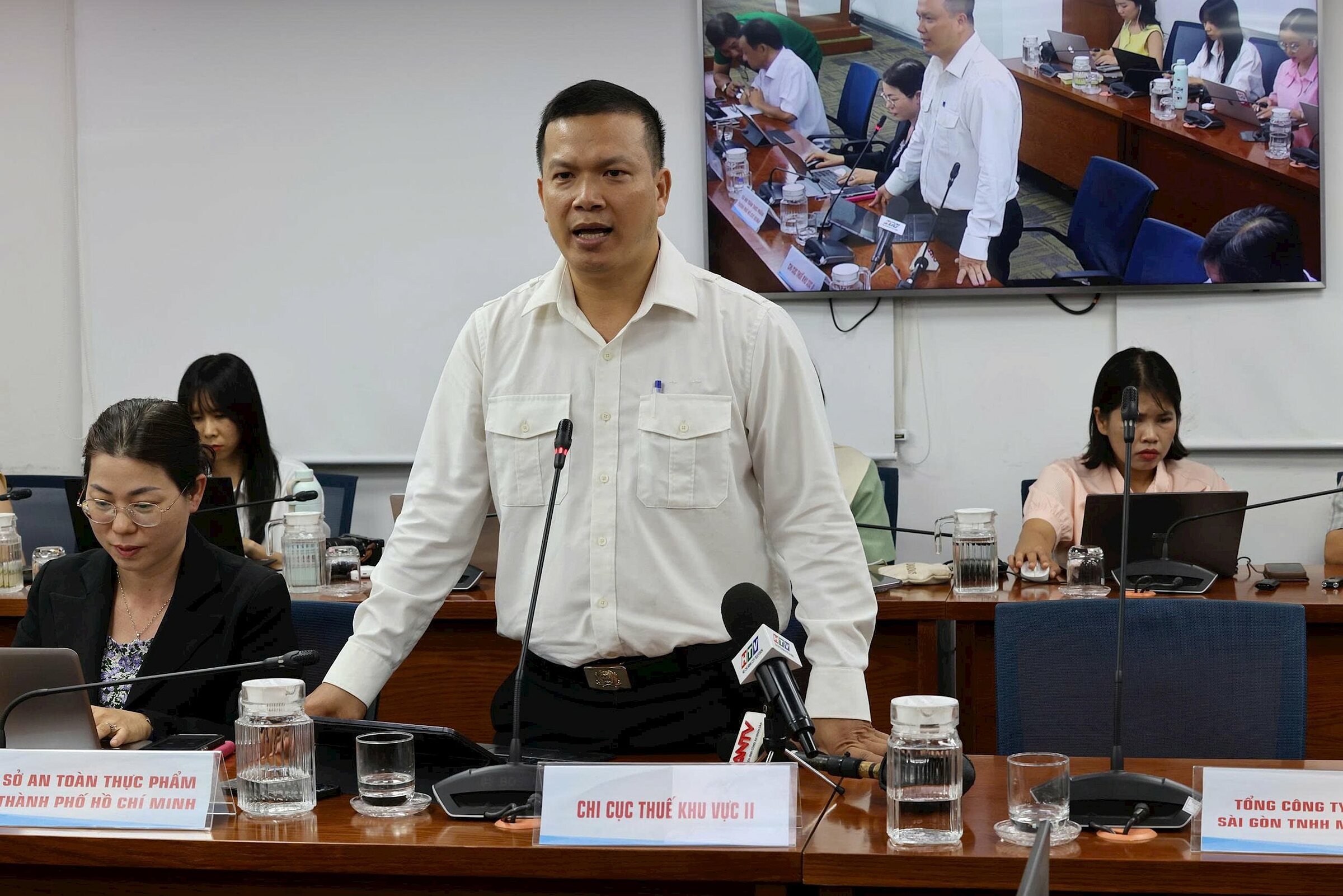Nguyen Hoa Bac, head of the Department of Personal, Household Business, and Other Taxes at Tax Sub-department Region II (Ministry of Finance), announced this at a socio-economic press conference on 26/6.
Bac said some businesses in the area still only accept cash payments for goods and services. Consequently, Tax Sub-department Region II has instructed local tax teams to investigate these cases and take strict action against any tax evasion.
According to Bac, the government is implementing several programs and solutions to promote cashless payments and the digital economy. Businesses refusing bank transfers are reducing their competitive edge and exhibiting a lack of transparency with regulatory bodies.
 |
Nguyen Hoa Bac, Head of the Department of Personal, Household Business and Other Taxes at Tax Sub-department Region II, at the press conference on 26/6. Photo: TTBC |
Nguyen Hoa Bac, Head of the Department of Personal, Household Business and Other Taxes at Tax Sub-department Region II, at the press conference on 26/6. Photo: TTBC
Under Decree 70, since 1/6, estimated-tax businesses with annual revenue exceeding 1 billion VND in certain sectors (food and beverage, hospitality, retail, etc.) must use electronic invoices generated from cash registers connected to the tax authorities.
From the beginning of 2026, the estimated tax mechanism for household businesses will officially end, replaced by self-declaration and tax payment based on actual revenue.
Therefore, household businesses that fail to comply, or do not fully declare and pay taxes on their actual revenue, are violating the law. This act is considered tax evasion and will result in a penalty of one to three times the amount of tax owed, depending on the severity of the violation. "In particular, evasion of 100 million VND or more can lead to criminal prosecution under Article 200 of the 2015 Criminal Code," Bac noted.
Ho Chi Minh City has approximately 200,000 household businesses, excluding rental properties. Of these, around 13,000 have annual revenue exceeding 1 billion VND and belong to the six sectors required to use electronic invoices generated from cash registers and connected to the tax authorities.
Dy Tung












